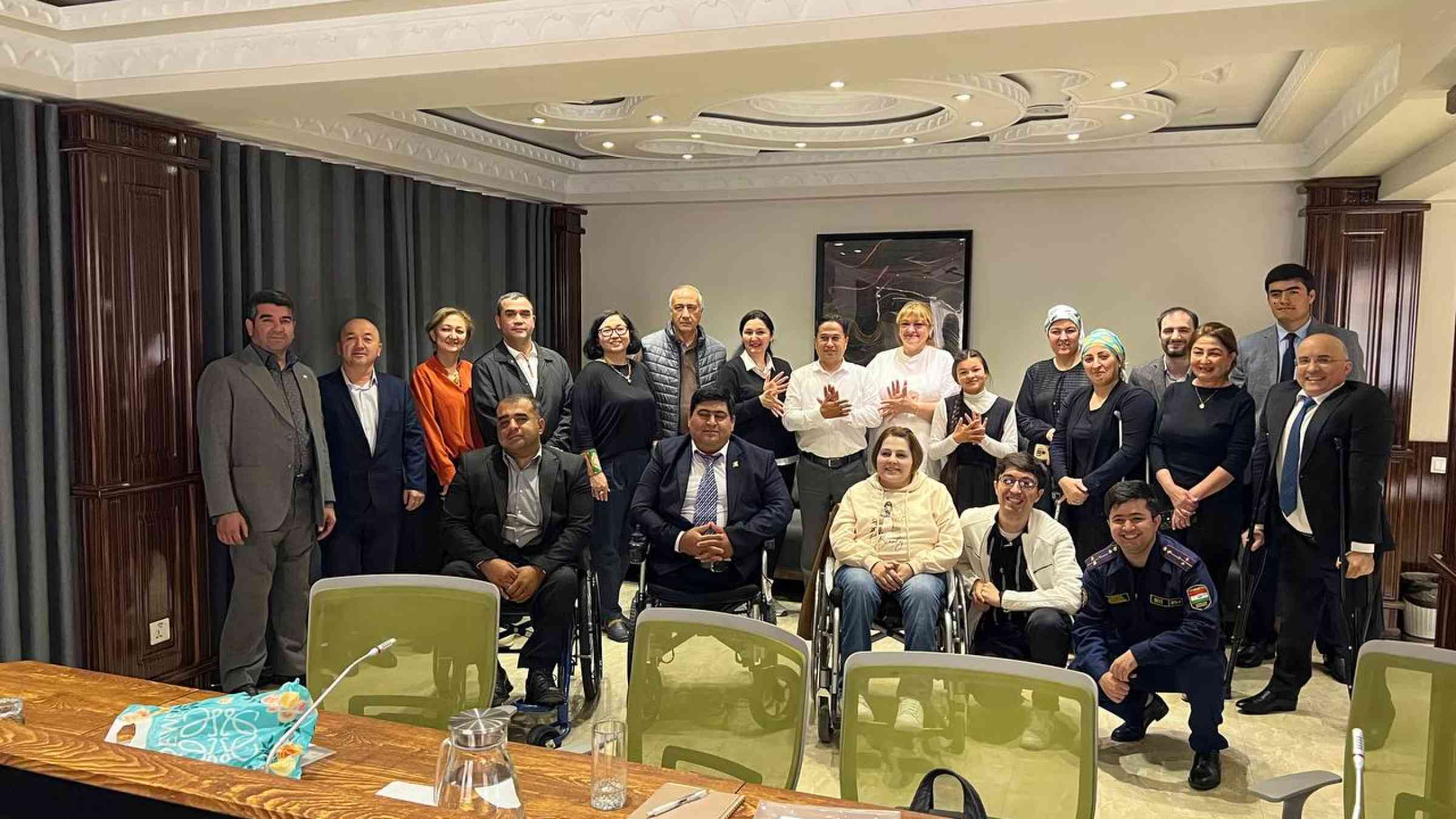Strengthening disability inclusion in Tajikistan

Dushanbe, Tajikistan – The United Nations Office for Disaster Risk Reduction (UNDRR), with support from the Eurasia Foundation and the National Society of Persons with Disabilities of Tajikistan, hosted a Capacity-Building Training aimed at empowering organizations representing persons with disabilities (PWDs) in disaster risk reduction in a changing climate.
The theme of the training, "The Role of Organizations for Persons with Disabilities in Disaster Risk Reduction in the Context of Climate Change," highlighted the essential role of civil society for inclusivity and resilience building.
The training was divided into three insightful sessions:
Session 1: Coordinating National and Local Actions for Urban Resilience
This introductory session addressed how national and local strategies must align to reduce disaster risk and enhance urban resilience, emphasizing the importance of collaborative planning and PWD participation.
Session 2: Principles of Urban Resilience and Inclusion in Disaster Risk Reduction
This session focused on integrating persons with disabilities into urban resilience and climate change mitigation strategies, covering essential concepts of risk and resilience, along with the use of city disaster scorecards. Participants explored how these scorecards serve as practical tools to guide PWD organizations in planning and fostering dialogue with municipal authorities and identifying opportunities for impactful projects and grants.
Session 3: Gender Inequality and intersectionality in Urban Disaster Resilience
The final session discussed gender inequality and various vulnerability factors within urban resilience frameworks, stressing the importance of equitable representation and tailored risk reduction strategies for all groups.
Representatives from 13 NGOs focusing on diverse disability categories participated in the event. Additionally, the Committee of Emergency Situations and Civil Defense, along with a UN Resident Coordinator’s Office (UNRCO) Advisor on Disability Inclusion, lent their insights, furthering the commitment to build an inclusive disaster preparedness framework in Tajikistan.
This training marks a significant step toward fostering a collaborative, inclusive approach to disaster risk management, aligning with global efforts to integrate disability inclusion in urban resilience and climate adaptation.